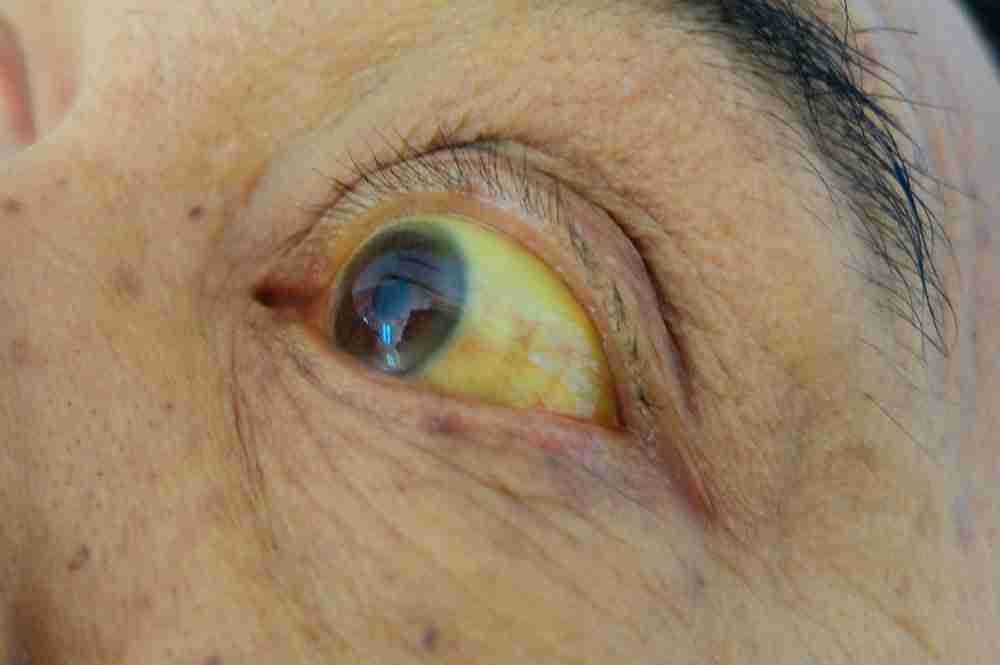Jaundice

It is characterized by yellowing of eyes and skin. Jaundice is not a disease, but a common symptom of several conditions that can be hepatic as well as non-hepatic. When the underlying cause is liver, there is either too much production or accumulation of bilirubin in your body. Bilirubin is a green-yellow pigment that is produced as a result of the breakdown of red blood cells in the liver. In normal circumstances, it is the way by which your body gets rid of old and worn out red blood cells.
Jaundice develops when your liver is not metabolizing bilirubin the way it is supposed to do. Sometimes there is an obstruction of bilirubin flow into the intestine, from where it is normally excreted from the body through the stools. In such cases, there is too much accumulation of bilirubin in the liver that slowly diffuses into the blood circulation and thus results in yellowing of the skin
Paleness of the skin and yellow-tinted eyes typically characterize jaundice. In some severe liver diseases, the whites of your eyes may also turn yellow or brown. Another characteristic of jaundice is the dark urine or pale stools. If an underlying condition is infectious such as viral hepatitis, you may also experience other associated symptoms like nausea, vomiting, and excessive fatigue. Jaundice in adults can be due to one of the following hepatic conditions.
- Cirrhosis (scarring of the liver, usually due to alcohol)
- Alcohol misuse
- G6PD deficiency
- Biliary (bile duct) obstruction
- Gallstones (pigment stones made of bilirubin or cholesterol stones made of hardened fat material)
- Hepatitis A, B, C, D, E
- Liver cancer
A majority of people may misdiagnose themselves when they experience jaundice. When jaundice develops, both of your eyes and skin will turn yellow. If there is only one symptom, i.e., either yellowing of the skin or one eye, it could be due to several other reasons such as too much beta carotene in your body. It is pigment commonly found in foods such as sweet potatoes, pumpkins, and carrots. An excess of this pigment can also result in yellowing of the skin, however, it does not cause jaundice.

